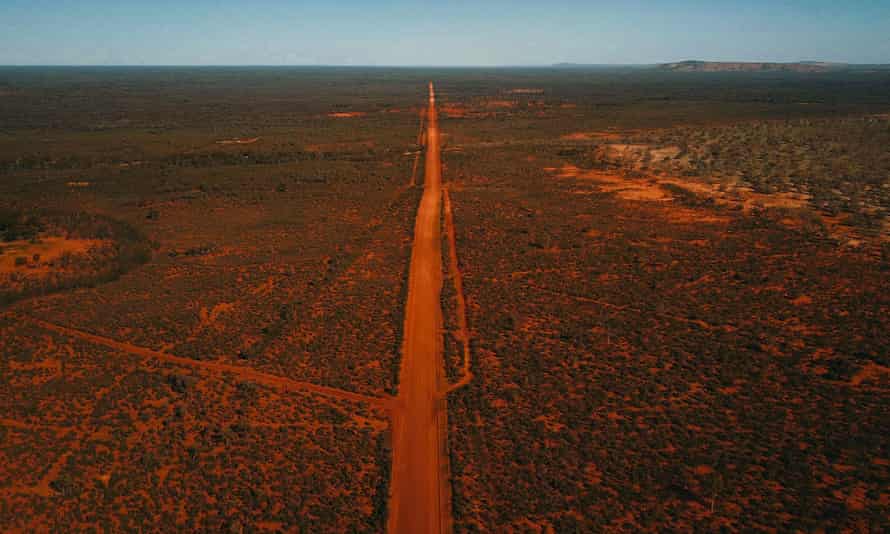Extract from The Guardian
One path leads to suffering and ruin. The other to a safe and vital future. But you must leave fossil fuels behind

Last modified on Wed 30 Jun 2021 14.12 AEST
Australia stands at a crossroads, once more. While most of the world has started down a path toward building a cleaner, safer energy and climate future, the Australian government remains stuck in place.
To an outside observer like myself, Australia’s approach is reminiscent of the what we saw several years ago with other intransigent countries – hesitant, stubbornly clinging to outmoded energy systems and unwilling to embrace the necessary and inevitable transition away from fossil fuels.
The difference is now, the rest of the world is moving swiftly down the path of a renewable energy transformation, while Australia’s “leaders” are still bickering about which direction the country should go.

But despite the political rhetoric, the notion that Australia can continue on its current trajectory as the world’s biggest exporter of coal and gas, and one of the top contributors to carbon pollution, while also securing a safe, flourishing future for its populace is false. The two goals are as incompatible as oil and water.
It is now widely accepted that a global future powered by fossil fuels cannot safely sustain human civilization. Burning coal, oil and gas for electricity, transportation and manufacturing has been the primary driver of the climate crisis, a crisis that now threatens to engulf Australia as well as the rest of the world.
As a climate scientist who has spent decades studying the impact of carbon emissions from the burning of coal, oil and gas, the case against fossil fuels is clear. We must, with utmost urgency, cease using these destructive energy sources and make the shift to a cleaner, greener energy economy.
As I argue in The New Climate War, the most important action we must take is at the systemic level. We must transform our energy infrastructure from polluting fossil fuels to renewables with urgency and dispatch.
A report from Greenpeace Australia Pacific released this week lays out the case against fossil fuels in stark detail. It describes how burning fossil fuels – coal, oil and gas – has created climate calamity, marked by the extreme heat, devastating floods, inundated coastlines and super-charged bushfires with which Australians are sadly now all too familiar.
These adverse climate impacts, driven by the fossil fuel industry and those who aid and abet it, are wreaking havoc on public health systems. People are dying from toxic air from climate-accelerated bushfires and noxious coal-burning power stations.
Groundwater supplies, so precious and scarce in a famously arid land like Australia, are being contaminated by the rapacious gas industry. Food security is at risk as farmers struggle to adapt to a rapidly warming climate.
As much as some Australian politicians may like to talk about coal and gas being foundational to Australia’s economy, it has become increasingly clear that it will in fact be its downfall. As Greenpeace’s report (and numerous reports before it) make clear, Australia is a country on the frontlines of the climate crisis. The cost of damage wreaked by the extraction and burning of fossil fuels already outweighs any short-term economic gains to be made by exploiting these toxic resources. This will become ever more true if Australia proceeds headlong down the treacherous fossil fuel path.
As a country blessed with abundant sun, wind and open space, Australia has so much to gain from embracing clean climate solutions – and so much to lose by a failure to do so. And yet the Australian government has repeatedly failed to act to protect its people from the greed of the fossil fuel industry, whose insidious influence can be seen in its short-sighted decision-making.
The prime minister, Scott Morrison, dissembles on the world stage at a succession of international conferences where Australia’s do-nothing climate approach is beginning to stick out like the proverbial sore thumb.
Only last week Unesco proposed to downgrade the status of the Great Barrier Reef to “world heritage in danger” due to the mass bleaching of coral caused by a rapidly warming ocean, leaving people around the world asking why the Australian government is failing in its duty to preserve this magnificent, irreplaceable natural wonder it has been entrusted to steward.
Meanwhile, history seems to be repeating itself in Australian domestic politics as Barnaby Joyce, an individual with whom I exchanged heated words at the height of the Australian 2019-20 bushfires, once again takes the reins as deputy prime minister, threatening to drag the country’s climate policy backward further still.
This theatre-show, turning crucial climate progress into a divisive tool for political point-scoring, does not serve the interests of the Australian people, and your unique continent with the awesome diversity of life and culture it sustains. The clock is ticking but it’s not too late for Australia to step up and do its part in tackling the global climate challenge that faces us all.
Australia must choose between two paths as it faces its future. One leads to suffering and ruin. The other leads to a safe and vital future. But to pass through the gate it must leave fossil fuels behind. The choice is yours, mates.
Michael E Mann is distinguished professor of atmospheric science and director of the Earth System Science Center at Penn State University. He is author of The New Climate War: The Fight to Take Back Our Planet.
No comments:
Post a Comment